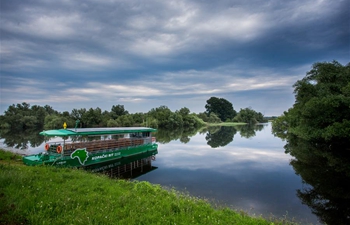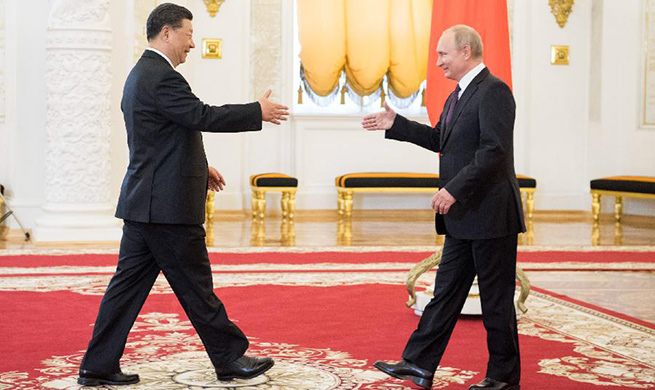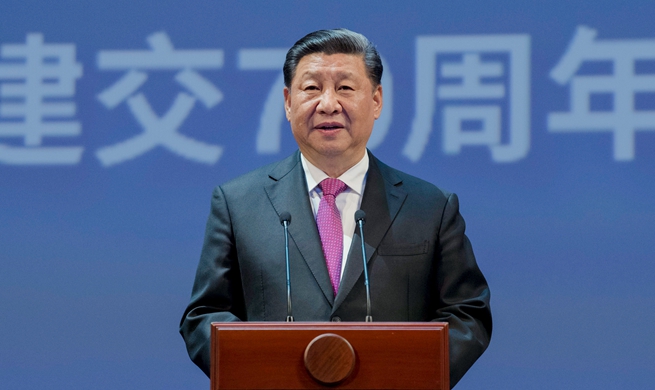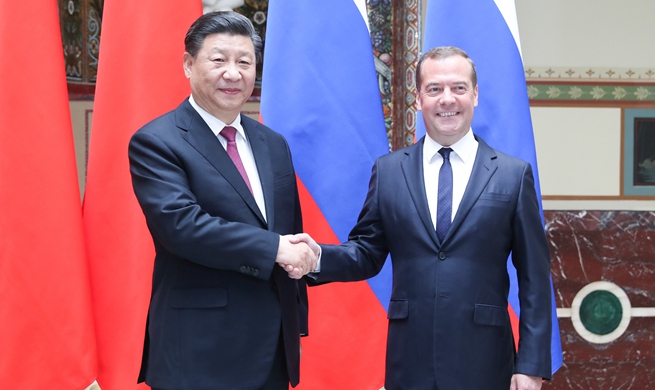HELSINKI, June 6 (Xinhua) -- The plan for an Arctic telecommunication cable from Northern Europe to the Far East turned out to get a boost in its progress on Thursday. The Finnish state-majority-owned company Cinia announced it had found a Russian partner for the project.
Cinia and Russian mobile phone operator Megafon on Thursday signed a document of understanding to set up a joint venture for the project. The agreement was signed at the International Economic Forum in St. Petersburg.
Cinia said the alliance, at this phase, consists, besides the Finnish and Russian partners, of "Japanese and Nordic signatories and an international investment bank". Newspaper Helsingin Sanomat said their names would be published later in summer.
The 10,800-km cable would reduce the latency, or delay, in connections between Europe and Asia from the current 250 milliseconds to 150 milliseconds.
Cinia said in its media release the project company would be established by the end of 2019. Helsingin Sanomat noted the cable would be ready in 2022 at the earliest.
Talking from the St. Petersburg forum to Helsingin Sanomat, Cinia's CEO Ari-Pekka Knaapila said that after the establishment of the company technical planning would become more specific and tenders for the actual construction could be requested.
At the same time, talks could proceed with potential future customers of the data connection. He also said each partner would apply for the required permits in the coastal countries.
The route of the "Northeast cable" would go from the Barents Sea via the Bering Strait to the Japan Sea. The planned connection would reach the Russian Vladivostok area and the west coast of Japan. In the European end it would land both in the Kirknes bay in Norway and the Murmansk area in Russia.
The media release from Cinia quoted Gevork Vermishyan, CEO of MegaFon, as saying that MegaFon is proud to join a major international infrastructure project that will "not only connect several continents via the Arctic but also will benefit MegaFon as a leader of digital opportunities".
Knaapila noted in the release that the Arctic cable will contribute to the socio-economic development of the Arctic areas. "The cable is an environmentally sustainable way to boost global, regional and local economy. At the same time, the cable will connect continents, covering approximately 85 percent of the world's population," Knaapila said.













